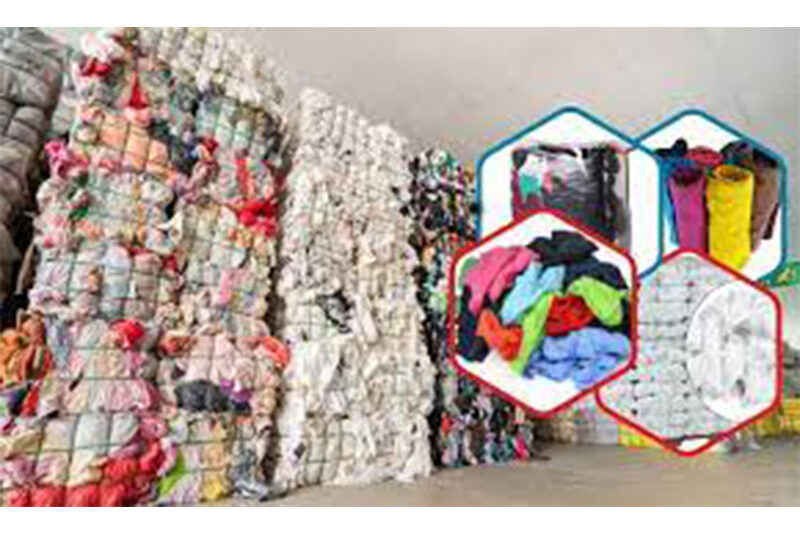Introduction
Industrial rags are essential for cleaning, spill absorption, and maintaining hygiene in industries like manufacturing and automotive. Improper disposal of oily industrial rags can lead to fire hazards and environmental pollution, risking both safety and compliance.
This article offers practical steps for the safe disposal of oily rags to protect your workplace, and the environment, and ensure regulatory adherence.

Why Proper Disposal of Oily Rags is Critical
Industrial wiping rags especially those contaminated with motor oil, grease, and solvents, pose significant hazards that require proper disposal.
1. Risk of Spontaneous Combustion
One of the most serious dangers associated with oily rags is spontaneous combustion. Flammable residues like oils or solvents can oxidize, generating heat that may ignite the rags without warning, leading to workplace fires and potential harm to lives, equipment, and facilities.
2. Environmental Pollution
Improper disposal of oily rags can contaminate soil and water, harming wildlife and ecosystems. This environmental damage may also result in fines or legal consequences for businesses.
3. Protecting Your Workplace Safe
Safe disposal practices reduce fire risks, prevent environmental harm, and show a commitment to sustainability. This protects employees, ensures compliance, and enhances a company’s reputation for responsibility and safety.
Proper handling of oily industrial cleaning rags is not only a legal obligation but also a critical step in ensuring workplace safety and environmental stewardship.

How to Dispose of Oily Rags in OSHA Guidelines
Proper disposal of oily rags is both a safety measure and a legal requirement. OSHA guidelines help businesses safely handle and dispose of oily industrial rags, reducing fire risks and protecting workers.
1. OSHA Requirements for Safe Handling
a. Use Approved Storage Containers
OSHA requires oily rags to be stored in metal containers with self-closing lids to prevent heat buildup and reduce the risk of spontaneous combustion.
b. Ensure Proper Ventilation and Cool Storage
Oily rag storage should be well-ventilated and kept away from heat sources or sunlight to prevent flammable vapors and reduce fire risks.
c. Label Containers Clearly
Store oily rags in a well-ventilated area, away from heat or sunlight, to prevent flammable vapor buildup and reduce fire risks.
2. Overview of Disposal Regulations Under RCRA
In addition to OSHA guidelines, the Environmental Protection Agency (EPA) regulates the disposal of oily rags under the Resource Conservation and Recovery Act (RCRA). RCRA classifies rags as hazardous waste if they are contaminated with certain solvents or chemicals. Businesses must:
- Determine Hazardous Waste Status: Test or assess industrial rags to determine if they contain hazardous materials.
- Use Certified Waste Disposal Services: If rags are deemed hazardous, they must be disposed of by a licensed hazardous waste management company.
- Maintain Documentation: Businesses are required to document the disposal process to prove compliance with federal and state regulations.
Following OSHA and RCRA guidelines ensures compliance, promotes safety and prevents accidents while supporting environmental stewardship.

Workplace Safety Tips for Handling Oily Industrial Rags
Safe handling of oily industrial rags is a shared responsibility. Implementing safety measures reduces risks of accidents, fires, and environmental damage. Here are key tips for a safer workplace.
1. Regular Employee Training on Handling and Disposal Practices
Regular training is essential to educate employees on risks and best practices for handling oily rags. Sessions should cover:
- How to safely handle oily rags, avoid overloading containers, and minimize improper storage risks.
- Proper disposal methods per OSHA and local regulations, including timing, procedures, and waste removal.
- Fire prevention tips, include storing rags in cool, ventilated areas and securely closing containers.
By investing in training, businesses ensure that employees are knowledgeable about the risks and how to mitigate them, creating a culture of safety in the workplace.
2. Frequent Inspection of Storage Containers for Damage or Hazards
Regularly inspect storage containers for damage to prevent accidents. Check for rust, cracks, or dents, ensure self-closing lids function properly, and confirm labels for easy identification. Replace damaged containers promptly.
3. Availability of Emergency Equipment (Fire Extinguishers, Spill Kits)
Accidents can still happen, so it’s crucial to have emergency equipment available. Fire extinguishers, spill kits, and emergency contacts should be easily accessible near areas where oily rags are used or stored.
Ensure extinguishers are charged, spill kits contain absorbents and gloves, and emergency contact numbers are clearly displayed to address incidents quickly and safely.

Conclusion
Proper disposal of oily industrial rags is crucial for safety, compliance, and sustainability. By following OSHA and EPA guidelines, businesses can reduce risks like fires and environmental damage.
At Hissen Rags, we provide high-quality industrial rags and sustainable solutions for laundering, recycling, and safe disposal. Our products, including white cotton rags, t-shirt rags and colored rags offer performance, durability, and safety to help improve workplace safety and environmental stewardship.



